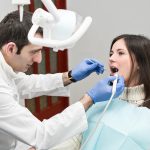Experiencing Wisdom Teeth Eruption: Unveiling The Sensations
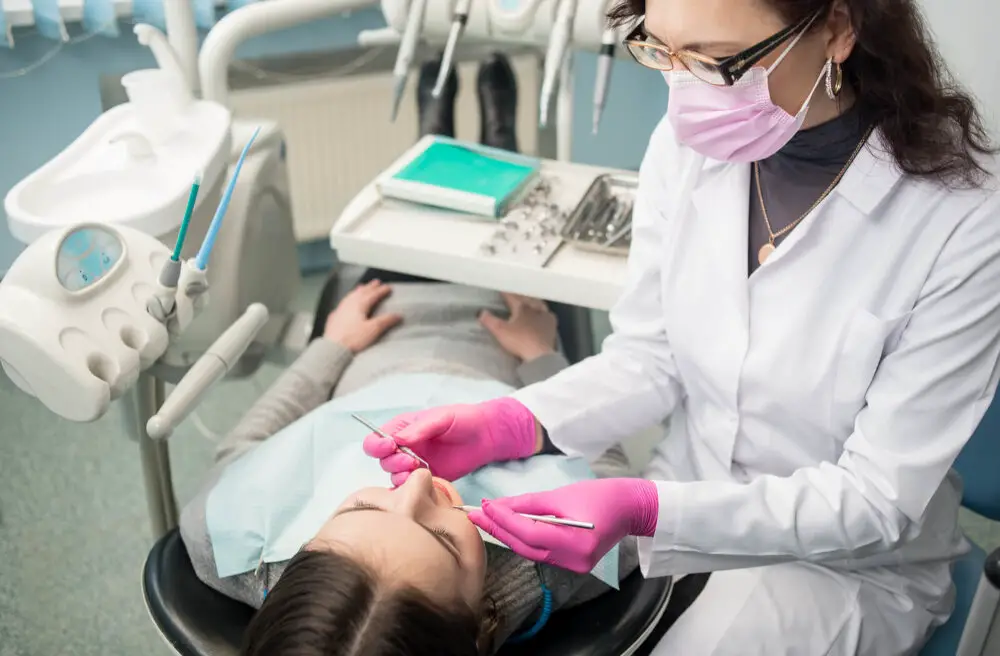
Wisdom teeth, also known as third molars, are the last set of teeth to develop and emerge in the mouth, typically between the ages of 17 and 25. While wisdom teeth can be a valuable addition to your mouth, they can also cause a great deal of discomfort and pain during eruption. The sensations experienced during wisdom teeth eruption can vary greatly from person to person, but it is important to understand what to expect to manage the pain and discomfort effectively. Many people experience pain, discomfort, and swelling during wisdom teeth eruption. This is because the teeth are pushing through the gums, which can cause irritation and inflammation. Additionally, wisdom teeth can cause crowding and shifting of the other teeth in the mouth, leading to further discomfort and pain. While some people may experience minimal discomfort, others may require medical intervention to manage the pain and swelling. Understanding the sensations associated with wisdom teeth eruption can help you better prepare for the experience and manage any discomfort that arises.
Wisdom teeth, also known as third molars, are the last set of teeth to erupt in the back of the mouth, usually between the ages of 17-25. These teeth are called wisdom teeth because they usually emerge when a person is old enough to have acquired some wisdom. However, they can also cause pain and discomfort if they do not have enough space to grow properly. Wisdom teeth usually erupt because our ancestors had larger jaws and needed extra molars to help chew tough foods. However, with the evolution of our diets and smaller jaw sizes, wisdom teeth have become less necessary and can cause problems such as overcrowding, infection, and impaction. As a result, many people opt to have them removed.
Wisdom teeth, also known as third molars, usually erupt between the ages of 17 and 25, but it can vary from person to person. The eruption of wisdom teeth can cause some discomfort and pain, as the jaw may not have enough space to accommodate these additional teeth. Some people may not experience any symptoms, while others may have swollen gums, jaw pain, and difficulty opening their mouth. In some cases, wisdom teeth may become impacted, which means they don’t fully emerge from the gums and can cause infection or damage to other teeth. It’s important to monitor the eruption of wisdom teeth and consult with a dentist if any problems arise.
Monitoring wisdom teeth eruption is crucial to ensure that the teeth are growing correctly and not causing any damage or complications. Wisdom teeth can cause overcrowding, misalignment, and infection if they do not have enough space to grow or if they grow at an abnormal angle. Moreover, wisdom teeth can also cause damage to surrounding teeth, gum tissue, and even the jawbone. Therefore, regular check-ups with a dentist or oral surgeon are essential to monitor the growth and positioning of wisdom teeth. Early detection of any issues can prevent more significant problems from developing and allow for timely interventions such as extraction or orthodontic treatment. By monitoring wisdom teeth eruption, individuals can maintain their oral health and avoid unnecessary discomfort and potentially expensive treatment.
Signs of Wisdom Teeth Eruption
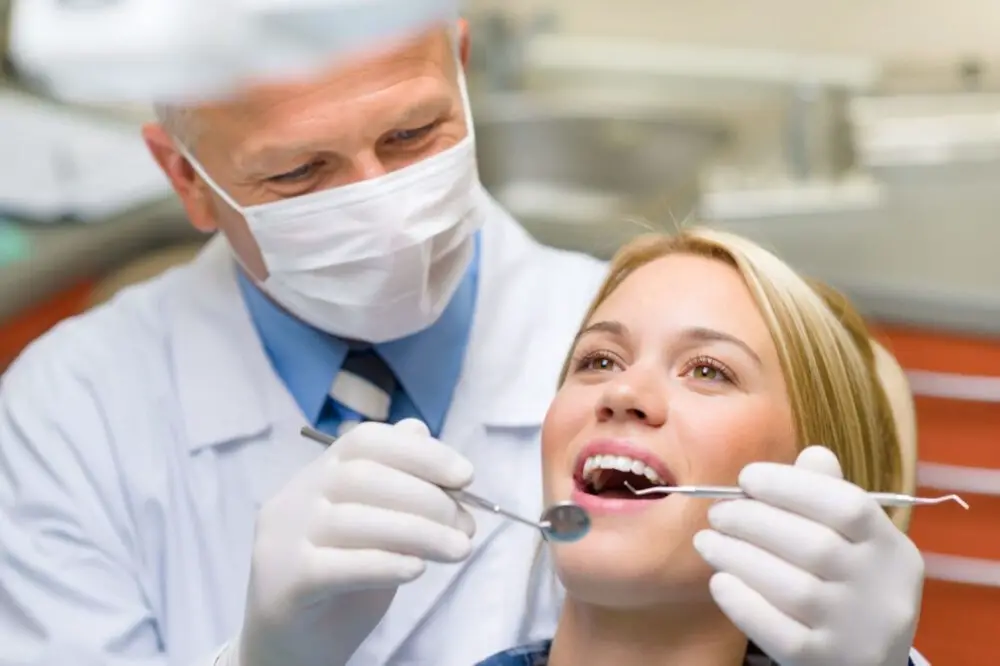
Wisdom teeth are the final set of molars that emerge at the back of the mouth, usually between the ages of 17 to 25. The eruption of wisdom teeth can cause discomfort and pain for some people. If you are experiencing wisdom teeth eruption, there are some signs that you can look out for to identify the sensations. The first sign of wisdom teeth eruption is tenderness or soreness in the jaw. This is often caused by the pressure of the teeth pushing against the surrounding tissue. You may also experience swelling and redness in the gum area where the teeth are emerging. In some cases, the gums may even bleed when you brush or floss. Another common sign of wisdom teeth eruption is aching or throbbing pain in the back of the mouth. This pain can be mild or severe and may radiate to other areas of the head, such as the ears and temples. You may also experience difficulty opening your mouth or pain when you do so. This is because the emerging teeth can push against the surrounding tissue, causing inflammation and discomfort. Other symptoms of wisdom teeth eruption include bad breath, a foul taste in the mouth, and difficulty chewing or swallowing. If you are experiencing any of these symptoms, it is important to see a dentist or oral surgeon for an evaluation.
The emergence of wisdom teeth can be a painful and discomforting experience, especially when they are located at the back of the mouth. This can cause a range of sensations, from dull aches to sharp pains, and may also be accompanied by swelling and inflammation. In some cases, the teeth may become impacted and fail to fully emerge, leading to further discomfort and even infection. It is important to seek professional dental care if you experience any persistent discomfort or pain in the back of your mouth during the eruption of your wisdom teeth, as this can help to alleviate your symptoms and prevent any potential complications.
Swollen or tender gums are a common sensation experienced during the eruption of wisdom teeth. As these molars push through the gums, they can cause discomfort and irritation, leading to redness and swelling. The pressure from the emerging teeth can also create tenderness in the surrounding tissues, making it difficult to eat or brush properly. It is important to maintain good oral hygiene during this time to prevent infection or further inflammation. Gentle brushing and rinsing with salt water can help soothe the gums and alleviate discomfort. However, if the pain becomes severe or is accompanied by fever or pus, it is important to seek medical attention as this could indicate a more serious issue.
Jaw pain or stiffness is a common sensation felt during wisdom teeth eruption. The pressure and force exerted by the growing teeth can cause discomfort and soreness in the jaw area, making it difficult to open and close the mouth. The pain can also radiate to the ears and neck, leading to headaches and difficulty in sleeping. To alleviate the discomfort, over-the-counter pain relief medication and warm compresses can be applied to the affected area. It is important to maintain good oral hygiene and to schedule regular dental check-ups to monitor the progress of the wisdom teeth eruption and to prevent any potential complications.
One of the most common sensations experienced during wisdom teeth eruption is a difficulty opening the mouth. This discomfort can be caused by the pressure exerted by the growing teeth on the surrounding tissues and muscles. As the teeth continue to emerge, it can become increasingly challenging to move the jaw, leading to soreness and stiffness. This sensation can be especially frustrating for those who enjoy eating and speaking, as it can limit their ability to do so comfortably. However, with proper care and attention, including warm compresses and gentle stretching exercises, this discomfort can be managed and alleviated.
What to Expect During Wisdom Teeth Eruption
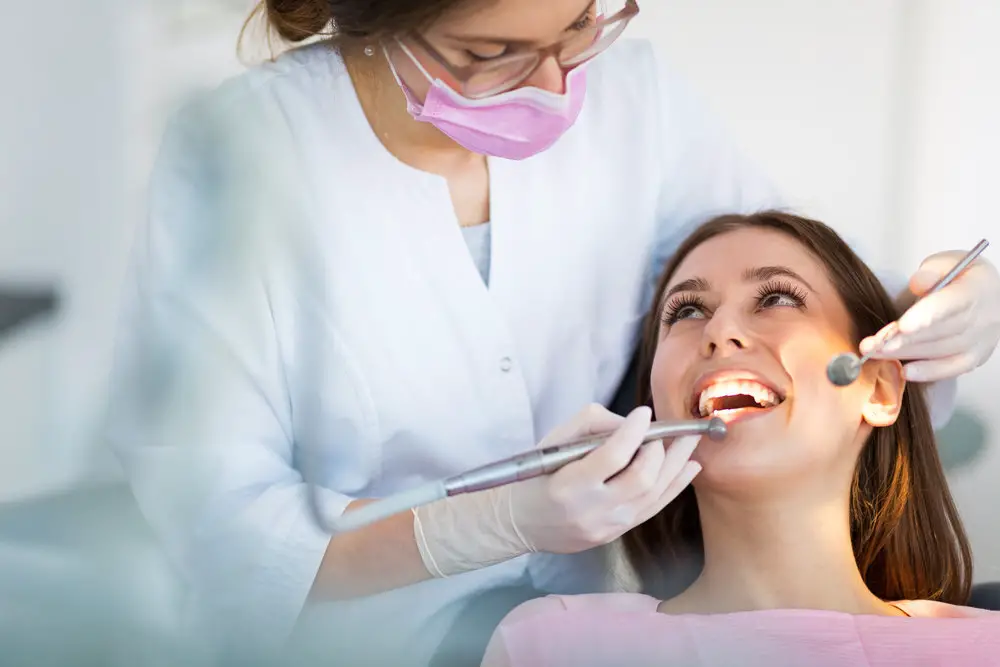
Wisdom teeth eruption is a natural process that typically occurs in late adolescence or early adulthood. During this time, the third molars begin to emerge from the gums, and this can cause a range of sensations in the mouth. Some people may experience discomfort or pain as the teeth push through the gum tissue, while others may not notice much of anything at all. It is normal to feel some pressure or soreness as the teeth make their way into position, but if the pain is severe or persistent, it is important to seek advice from a dental professional. It is also common for wisdom teeth eruption to cause some swelling and inflammation around the affected area. This is because the gums may become irritated as the teeth push through, and the body’s natural response is to send extra blood flow to the area. This can make the gums appear red, puffy, or tender to the touch. In some cases, a small flap of gum tissue may even cover part of the emerging tooth, creating a pocket where food particles and bacteria can become trapped. To prevent infection and further discomfort, it is important to practice good oral hygiene during this time, including regular brushing and flossing, and avoiding hard or crunchy foods that could aggravate the gums.
The timeline of wisdom teeth eruption varies from person to person. Generally, these teeth start to develop in the late teenage years and can continue to erupt until the mid-20s. Some individuals may experience the eruption of all four wisdom teeth, while others may only have one or two that emerge. The process can be painful and uncomfortable, as the teeth push through the gums and into the mouth. Symptoms such as swelling, soreness, and difficulty opening the mouth can occur. It is recommended to maintain good oral hygiene during this time and to visit a dentist if any issues arise.
As teeth begin to erupt, they move and shift within the jawbone. This process is known as tooth eruption, and it occurs when the tooth’s root slowly pushes up against the bone. As the tooth pushes upward, it creates pressure that causes the bone to resorb, or dissolve, around the tooth. At the same time, the tooth’s crown moves outward, breaking through the gum tissue. This movement can cause discomfort and pain, especially when it comes to wisdom teeth, which are the last molars to erupt and often don’t have enough space to come in properly. Some common sensations associated with tooth eruption include soreness, swelling, and a feeling of pressure in the jaw. It’s important to monitor the eruption process and seek dental care if you experience any severe symptoms.
As with any dental procedure, there are potential complications and risks associated with wisdom teeth eruption. One of the most common complications is infection, which can occur when bacteria enter the socket where the tooth was removed. Other potential complications include nerve damage, excessive bleeding, and dry socket, which occurs when the blood clot that normally forms after a tooth extraction is dislodged. Additionally, some people may experience more severe pain or swelling, or may develop a fever or other symptoms of infection. It is important to discuss any concerns or potential risks with your dentist or oral surgeon before undergoing a wisdom teeth extraction procedure.
Coping with Wisdom Teeth Eruption
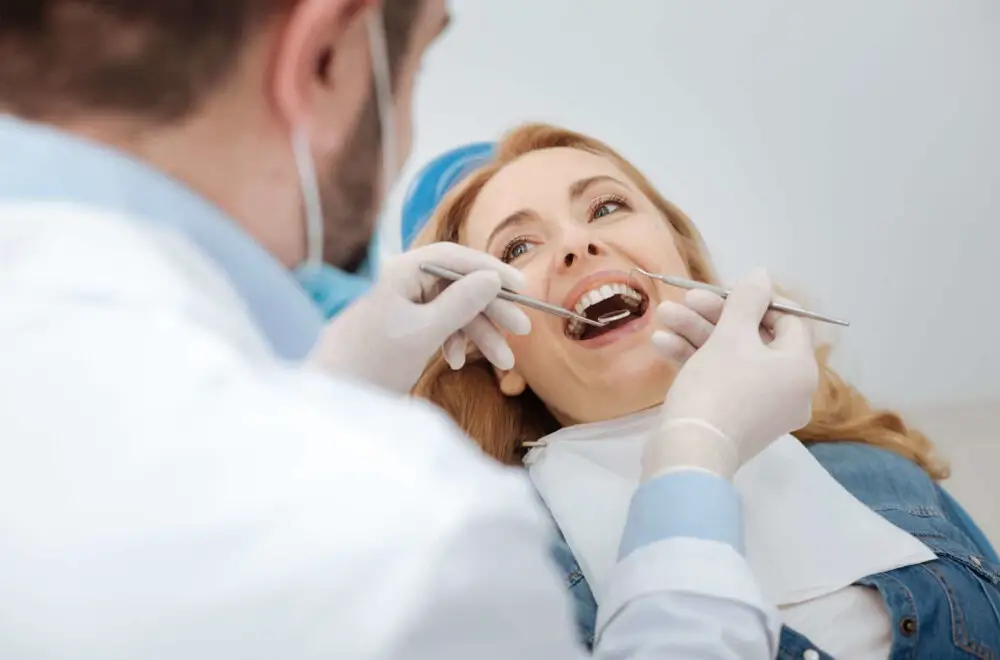
Wisdom teeth eruption can be quite an uncomfortable and painful experience. The process of wisdom teeth eruption is a natural phenomenon that occurs when the third molars in the back of the mouth begin to grow. While some people may not experience any symptoms, others may feel a range of sensations, including soreness, discomfort, and swelling. Coping with wisdom teeth eruption can be challenging, but there are several strategies that can help alleviate the pain and discomfort. One of the most effective ways to cope with wisdom teeth eruption is to maintain proper oral hygiene. This involves brushing and flossing the teeth regularly and using mouthwash to kill bacteria that may cause infection. Additionally, using a warm saltwater rinse can help reduce swelling and relieve pain. Another way to cope with wisdom teeth eruption is to manage the pain with over-the-counter pain medication. Ibuprofen or acetaminophen can help reduce inflammation and alleviate discomfort. Applying a cold compress to the affected area can also provide relief from pain and swelling. It is important to avoid hard and crunchy foods that may irritate the gums and cause further discomfort. Instead, opt for soft foods and liquids, such as soup, smoothies, and yogurt. By following these coping strategies, the discomfort associated with wisdom teeth eruption can be managed effectively, allowing individuals to go about their daily lives without undue pain or stress.
Over-the-counter pain relief options are readily available for those experiencing wisdom teeth eruption. Nonsteroidal anti-inflammatory drugs (NSAIDs) such as ibuprofen and aspirin can help reduce pain and inflammation. Acetaminophen can also help with pain but does not have the anti-inflammatory properties of NSAIDs. Topical analgesics, such as benzocaine, can provide temporary relief by numbing the affected area. It is important to follow the recommended dosage and talk to a healthcare professional before taking any medication, especially if you have any medical conditions or are taking other medications.
Experiencing pain and discomfort during wisdom teeth eruption can be overwhelming, but there are various home remedies that can alleviate the discomfort. One of the most effective ways is to rinse the mouth with warm salt water, which helps to reduce inflammation and soothe the gums. Applying a cold compress to the affected area can also help to numb the pain and reduce swelling. Over-the-counter pain relievers such as ibuprofen or acetaminophen can also provide temporary relief. Additionally, chewing on a piece of clove or placing a small amount of clove oil on the affected area can provide a natural anesthetic and reduce pain. Overall, these simple remedies can help to ease the discomfort of wisdom teeth eruption and make the experience more manageable.
Maintaining good oral hygiene during wisdom teeth eruption is crucial in preventing discomfort and infection. Brushing twice a day with a soft-bristled toothbrush and fluoride toothpaste can help remove food particles and plaque. Flossing daily also removes debris from between teeth and gums. Rinsing with an antiseptic mouthwash can help kill bacteria that cause bad breath and infections. Eating a balanced diet and avoiding sugary and acidic foods can prevent tooth decay. Additionally, visiting the dentist regularly for check-ups and cleanings can ensure that any issues are caught early and addressed promptly. By following these tips, individuals can maintain good oral hygiene during wisdom teeth eruption and beyond.
Seeking Professional Help for Wisdom Teeth Eruption
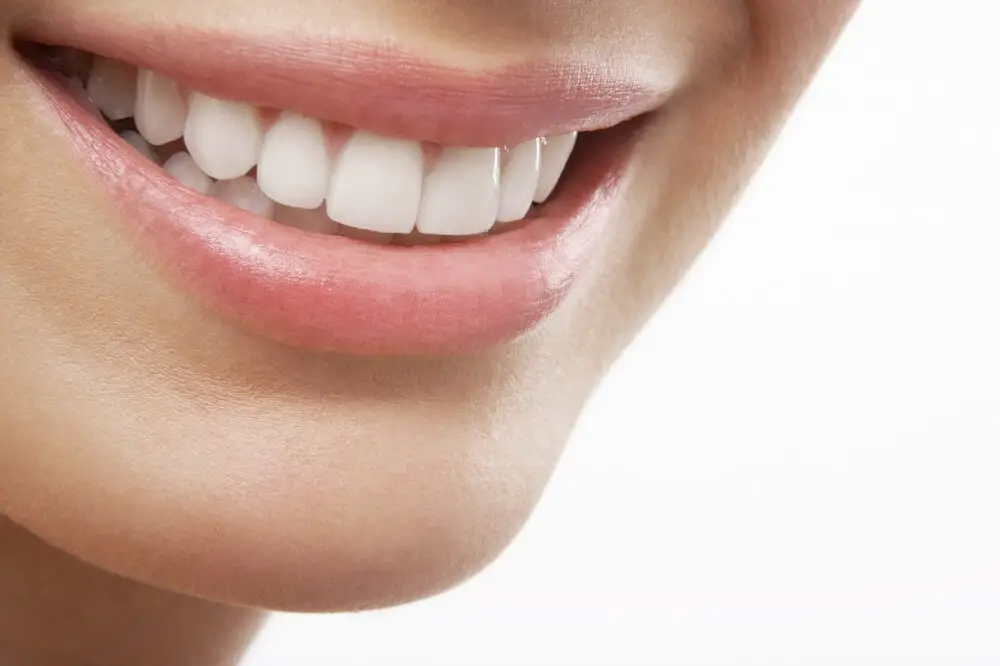
The eruption of wisdom teeth can be a painful and uncomfortable experience for many people. Seeking professional help for this issue is highly recommended as it can alleviate the pain and ensure that the teeth are properly aligned. A dental professional can provide guidance on how to manage the pain and discomfort associated with wisdom teeth eruption, as well as offer advice on brushing and flossing techniques to maintain good oral hygiene. In some cases, the dentist may recommend the removal of the wisdom teeth to prevent further complications. It is important to seek professional help as soon as possible to avoid any potential damage to the surrounding teeth and gums. Professional help can also offer relief to those who experience anxiety or fear when visiting the dentist. Dental professionals are trained to provide a calming and comfortable environment for their patients. They can offer sedation dentistry, which uses medication to help patients relax during the procedure. Additionally, a dentist can offer pain management techniques to alleviate discomfort during and after the procedure. Seeking professional help for wisdom teeth eruption can not only help alleviate pain and discomfort but also provide peace of mind for those who may be nervous about the process.
If you are experiencing wisdom teeth eruption and are unsure whether to see a dentist or oral surgeon, there are a few key factors to consider. First and foremost, if you are experiencing severe pain or swelling, it is important to seek immediate attention from a dental professional. Additionally, if your wisdom teeth are impacted or causing damage to other teeth, gums, or bone, an oral surgeon may need to intervene. It is also important to schedule regular dental check-ups to monitor the development of your wisdom teeth and address any concerns early on. Overall, it is best to err on the side of caution and seek professional advice if you are experiencing any discomfort or abnormal sensations related to your wisdom teeth.
Complications or impacted teeth during wisdom teeth eruption can be a painful and uncomfortable experience. In such cases, professional dental care is required to address the issue. The procedure involves the administration of local anesthesia to numb the area, followed by an incision to gain access to the impacted tooth. The tooth is then carefully removed, and the wound is sutured shut. Post-operative care is essential, with patients being advised to avoid solid foods and hot beverages for a few days. Pain relief medication may also be prescribed to manage discomfort. With the right treatment, impacted teeth can be successfully managed, and patients can resume their daily routines with ease.
Recovery and aftercare for wisdom teeth extraction are essential to ensure a smooth and comfortable healing process. After the procedure, it is common to experience some pain and swelling, which can be managed by applying ice packs to the affected area and taking pain relievers as prescribed by the dentist. It is also important to avoid smoking, drinking through a straw, and eating hard or crunchy foods for the first few days. Maintaining good oral hygiene, such as gently brushing and rinsing with saltwater, can also aid in the healing process. Follow-up appointments with the dentist are crucial to monitor progress and ensure that there are no complications. By following these aftercare guidelines, patients can recover quickly and comfortably from wisdom teeth extraction.
Wisdom teeth eruption is a natural process that occurs in the late teenage years or early adulthood. The sensation of wisdom teeth eruption can vary from person to person, but some common experiences include tenderness, swelling, and discomfort in the affected area. It is important to maintain good oral hygiene during this time to prevent infection and other complications. Wisdom teeth may need to be extracted if they cause significant pain or do not align properly with the rest of the teeth. Overall, wisdom teeth eruption can be a challenging but ultimately manageable experience with proper care and attention.
Monitoring and addressing any issues promptly during the process of wisdom teeth eruption is of utmost importance. Delaying or ignoring any discomfort or pain can lead to severe consequences such as infection, cyst formation, gum disease, and damage to nearby teeth. It is essential to keep a close eye on the development of wisdom teeth to detect any abnormalities or complications as early as possible. Timely measures such as medication, extraction, or surgical intervention can prevent the progression of any issue and provide relief to the patient. Therefore, it is crucial to seek professional advice and treatment promptly to avoid any potential complications and ensure a smooth wisdom teeth eruption experience.
Experiencing wisdom teeth eruption can be a challenging and painful process. It is essential to seek professional help if the discomfort becomes unbearable. Professional help can provide you with a range of treatments, including pain relievers, antibiotics, and even surgery if necessary. Delaying seeking professional help can result in more severe pain and potential complications. Don’t let fear or anxiety prevent you from getting the help you need. Your dentist or oral surgeon is there to help you, and their expertise can make all the difference in your experience. Don’t hesitate to seek professional help; it could be the key to a smoother and less painful wisdom teeth eruption.
Conclusion

In conclusion, experiencing wisdom teeth eruption can be a challenging and uncomfortable process for many individuals. The sensations can vary from person to person, but the most common symptoms include pain, swelling, and difficulty eating or speaking. It is important to keep in mind that this is a natural process and that there are ways to manage the discomfort, such as taking medication, using ice packs, and practicing good oral hygiene. It is also crucial to consult a dentist if the pain or swelling becomes severe or if there are any complications during the eruption process. Overall, while the experience of wisdom teeth eruption may not be pleasant, it is a normal part of growing up and can ultimately lead to a healthier and stronger set of teeth.


